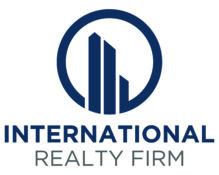Selling a house can be an exciting yet complex process. As a homeowner in Ontario, it’s crucial to understand the various costs involved when selling your property. From real estate commissions to legal fees and closing costs, being aware of these expenses can help you plan your finances better and make informed decisions. In this article, we will explore the cost of selling a house in Ontario, providing you with valuable insights and tips to navigate this financial aspect of selling your home.
Understanding Real Estate Commissions
When you sell a house in Ontario, one of the significant costs you need to consider is the real estate commission. Typically, the seller pays the commission to both their real estate agent and the buyer’s agent. The commission is calculated as a percentage of the final sale price, usually ranging from 3% to 5%. It’s essential to negotiate the commission rate upfront and understand the services included in the commission.
Legal Fees and Disbursements
Engaging a real estate lawyer is vital to ensure a smooth transaction during the selling process. Legal fees and disbursements encompass the costs associated with the lawyer’s services, such as reviewing documents, conducting title searches, preparing necessary paperwork, and facilitating the closing process. The fees can vary depending on the complexity of the transaction and the lawyer’s experience.
Home Staging and Repairs
Presenting your home in the best possible light can significantly impact its sale price. Home staging involves decluttering, rearranging furniture, and adding decorative elements to make the property more appealing to potential buyers. Additionally, any necessary repairs or renovations should be taken care of before listing your house. While staging and repairs are not mandatory, investing in these aspects can help attract more buyers and potentially increase your home’s value.
Marketing and Advertising Costs
To effectively market your property and reach a wide pool of potential buyers, you may incur marketing and advertising expenses. This includes creating professional photographs, virtual tours, property brochures, online listings, and social media advertisements. Collaborating with a real estate agent who has a robust marketing strategy can be beneficial in attracting qualified buyers to your home.
Pre-Listing Inspection
While not mandatory, a pre-listing inspection can be advantageous. It involves hiring a professional home inspector to assess the condition of your property before listing it for sale. This inspection can help identify any underlying issues or necessary repairs, allowing you to address them in advance. By being proactive, you can prevent potential surprises during the buyer’s inspection and negotiate with confidence.
Land Transfer Tax
In Ontario, sellers are responsible for paying the land transfer tax. The amount is calculated based on the property’s sale price and is payable upon closing. The tax rates vary depending on the purchase price, with a higher rate applied to properties above a certain threshold. It’s important to consider this cost when estimating your expenses.
Mortgage Penalties
If you have an existing mortgage on the property you’re selling, you may encounter mortgage penalties. These penalties are charged by the lender if you choose to pay off your mortgage before the agreed-upon term. The penalties can vary based on your mortgage agreement, so it’s crucial to consult with your lender to understand the potential costs involved.
Moving Expenses
Moving to a new home comes with its own set of expenses. Whether you’re hiring professional movers or renting a truck to transport your belongings, these costs should be factored into your budget. Additionally, you may need to consider temporary storage if there’s a gap between selling your current home and moving into your new one.
Capital Gains Tax
When you sell a property in Ontario, any profit you make may be subject to capital gains tax. However, the sale of your primary residence is generally exempt from this tax. It’s important to consult with a tax professional or accountant to understand your specific situation and any potential tax obligations.
HST on New Homes
If you’re selling a newly constructed home, the sale may be subject to Harmonized Sales Tax (HST). While this tax is usually built into the sale price, it’s crucial to consult with your real estate agent or lawyer to ensure you understand the HST implications and any potential costs associated with it.
Appraisal Fees
In some cases, the buyer’s lender may require a property appraisal to determine its market value. As the seller, you may be responsible for covering this cost. An appraisal fee can range from a few hundred to several hundred dollars, depending on the complexity of the appraisal.
Title Insurance
Title insurance protects both the buyer and the lender against any defects or issues with the property’s title. While the buyer typically purchases title insurance, some sellers may choose to obtain it as well. The cost of title insurance varies based on the property’s value and other factors, and it’s advisable to discuss this with your lawyer or title insurance provider.
Closing Costs
Closing costs include various expenses associated with the final stages of the selling process. This may include land registration fees, courier fees, administrative costs, and any outstanding property taxes or utilities. It’s essential to consult with your lawyer or real estate agent to understand the specific closing costs applicable to your situation.
Professional Photography and Virtual Tours
Investing in professional photography and virtual tours can enhance the marketing efforts for your property. High-quality visuals can attract potential buyers and showcase your home’s best features. While there may be a cost associated with professional photography, it can be a worthwhile investment to make your listing stand out in a competitive market.
Negotiating Strategies
During the selling process, negotiations with potential buyers may occur. It’s crucial to be prepared and have effective negotiating strategies in place. This includes setting a realistic asking price, knowing your property’s value, understanding market trends, and being open to reasonable offers. Collaborating with a skilled real estate agent can provide valuable guidance and support throughout the negotiation process.
Conclusion
Selling a house in Ontario involves various costs that need to be considered when planning your sale. By understanding these expenses upfront, you can budget effectively and avoid any financial surprises along the way. Remember to consult with professionals such as real estate agents, lawyers, and accountants to ensure you have accurate information tailored to your specific circumstances.
Frequently Asked Questions
1. Do I have to pay real estate commissions as a seller in Ontario? Yes, typically, sellers in Ontario are responsible for paying real estate commissions to both their agent and the buyer’s agent. The commission is a percentage of the final sale price.
2. How much is the land transfer tax in Ontario? The land transfer tax in Ontario varies based on the purchase price of the property. There are different tax rates for properties above a certain threshold.
3. Do I need to stage my home when selling in Ontario? Home staging is not mandatory but can significantly impact the sale price and attract more buyers. Investing in staging can be beneficial, especially in a competitive market.
4. Are there penalties for paying off my mortgage early when selling a house in Ontario? There may be mortgage penalties for paying off your mortgage early. The penalties depend on your mortgage agreement, so it’s essential to consult with your lender.
5. How can I negotiate effectively when selling my house in Ontario? To negotiate effectively, set a realistic asking price, know your property’s value, and be open to reasonable offers. Collaborating with a skilled real estate agent can provide valuable guidance during negotiations.

